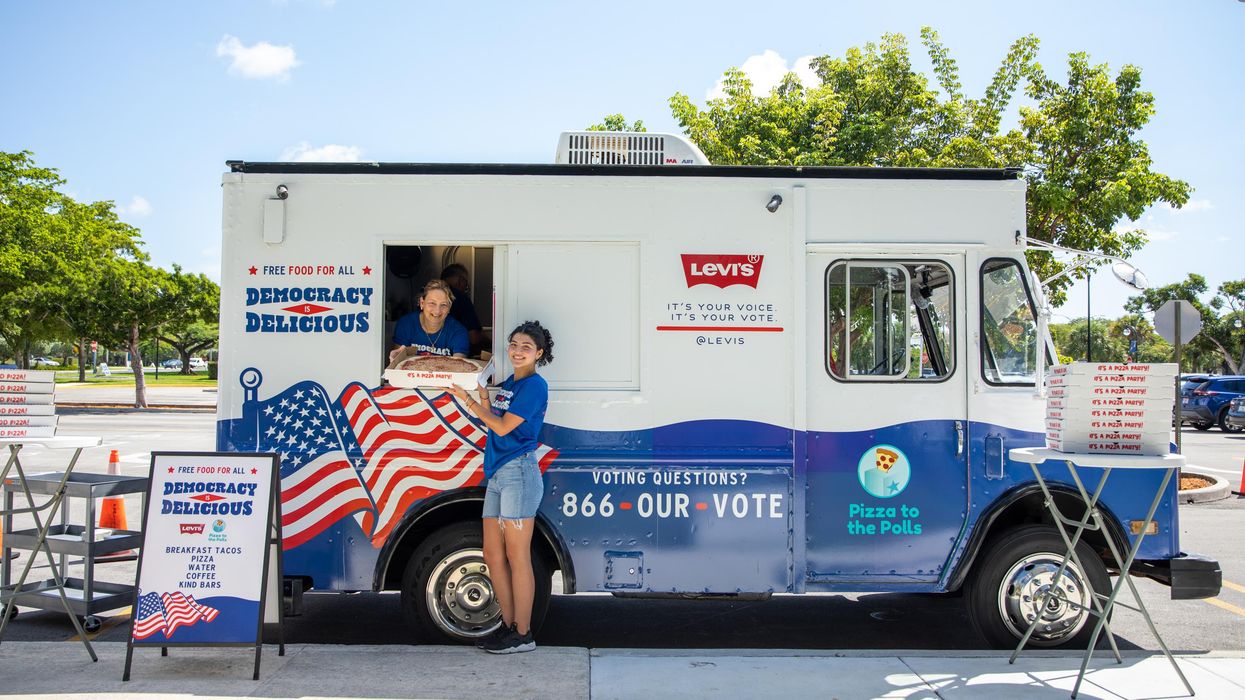Noaman is the executive director of Pizza to the Polls.
After the 2020 election saw some of the longest lines at polling places in the past several elections – from New York and Texas to Georgia and Ohio – voters are proactively preparing and making plans to cast their ballots as the 2022 midterms quickly approach. With so many individuals becoming more politically involved and looking forward to voting this year, it is critical that they are supported with a functioning civic engagement ecosystem.
Feeding people and providing water keeps people in line to vote and keeps elections running smoothly.
Powering an election through food
The lack of resources provided to voters on Election Day is a critical gap in the electoral support system. However, when this gap is closed and support is provided to those in line, we see electoral success in a few key ways: greater turnout and, as a result, a more representative outcome.
When a simple snack or bottle of water is supplied, people who would have otherwise abandoned their right to vote for their basic human need to eat are able to stay in line and cast a ballot. This is critical as, historically, the United States has struggled with voter turnout. In fact, in 2020, only about 69 percent of voters cast a ballot – more than any other year but still only two-thirds of the eligible population.
According to a recent paper published by a University of Pennsylvania political scientist, every additional hour a voter waits in line decreases the probability they will vote by 1 percent. While that may seem insignificant, the paper also suggests that almost 200,000 people did not vote in 2014 because of the amount of time they had to wait in 2012.
Now, imagine if hundreds of thousands of the 69 percent who did vote in 2020 ended up going home because lines were too long and they were hungry or thirsty. Not only could that election have had different results, but the turnout for this year’s election could be compromised too.
When more people vote, the entire electoral process is able to run more smoothly. The process of voting in person is streamlined, identities have already been verified and the votes are immediately counted. However, when ballots are cast via mail or drop box they undergo several additional measures of review before being counted.
Long lines can be incredibly demoralizing to the average voter; providing food and beverages is a great way to keep people engaged and excited during an activity that often feels mundane and taxing. We know that voting is habit forming, so a good experience is crucial to guaranteeing turnout.
Everyone deserves a snack
In 2020, many organizations, such as Pizza to the Polls, successfully stepped up to support those waiting in long lines to vote. Millions of people across the country – from voters and their children to poll workers, journalists and even people passing by – were all able to enjoy refreshments and keep polling locations a place of celebration as intended.
The key to success for many of these initiatives is ensuring that all distribution takes place in a nonpartisan way, following all election compliance laws. Regardless of who you’re voting for (or if you are voting at all), everyone at polling places should have access to food and water in a safe and lawful way. This simple gesture of feeding people in long lines engages civic participants across the political spectrum, ensuring citizens do not have to choose between their civic duty and hunger.
It’s time to fuel democracy
As we look towards the 2022 elections, it’s clear the demand for these resources will once again be high. If we want to see democracy do its job this election season, supporting organizations that provide these basic needs on the ground is essential to electoral success.



















Trump & Hegseth gave Mark Kelly a huge 2028 gift